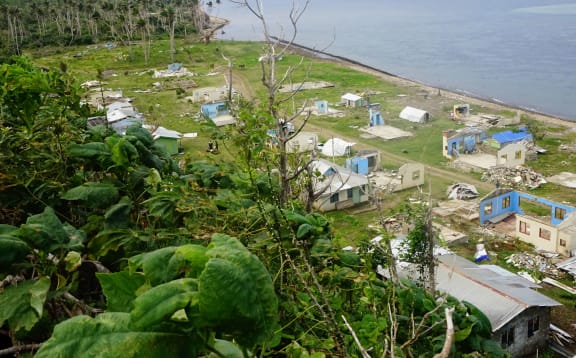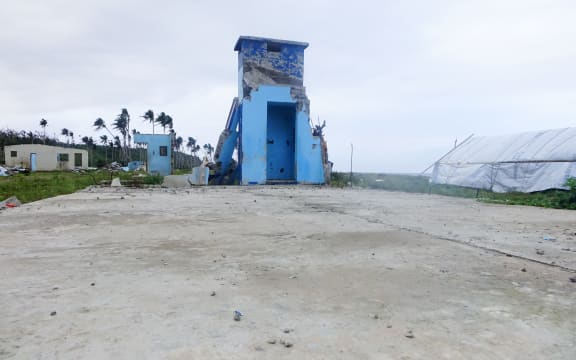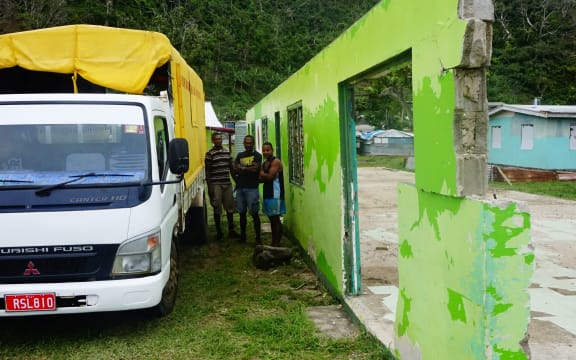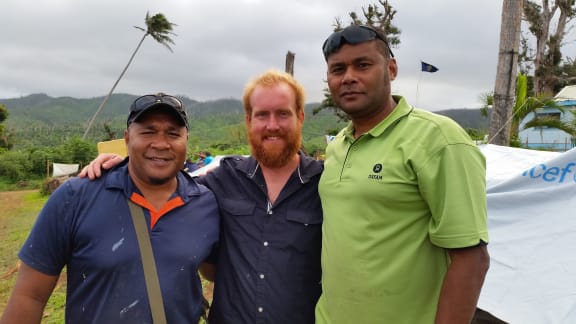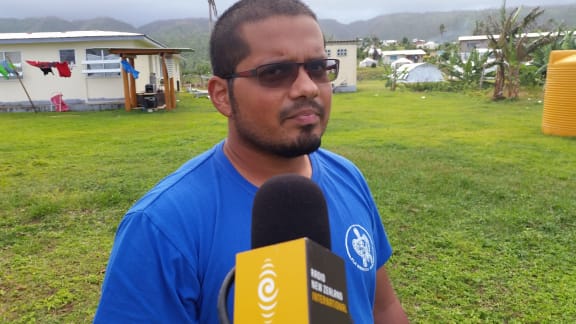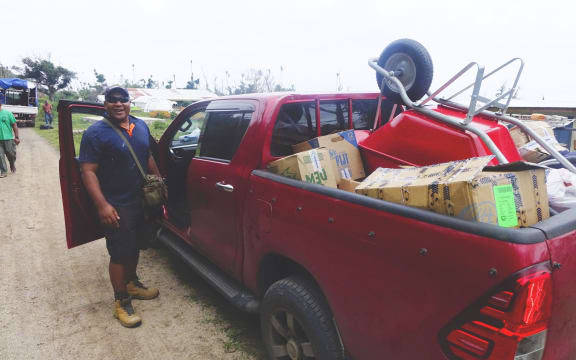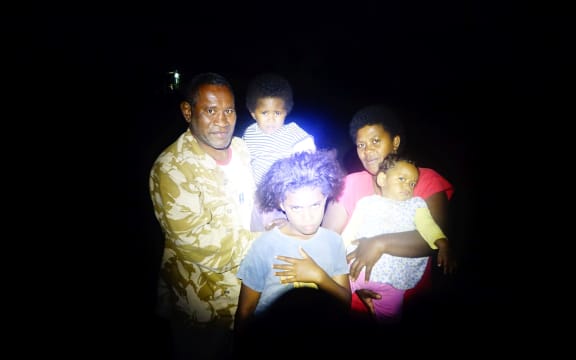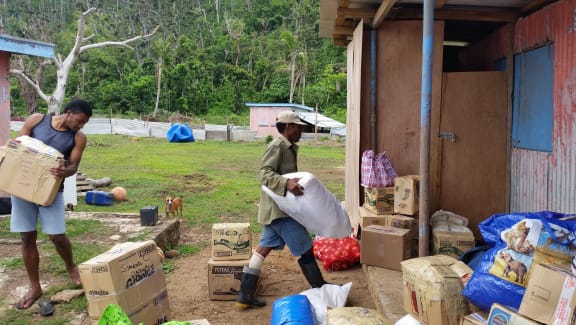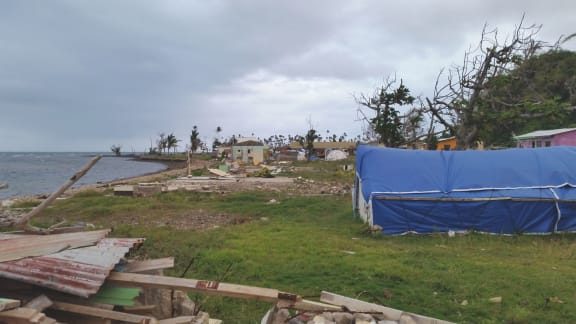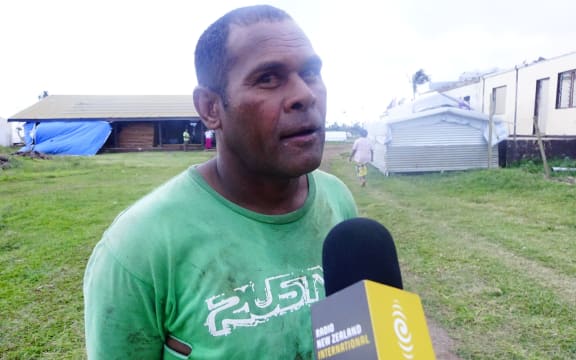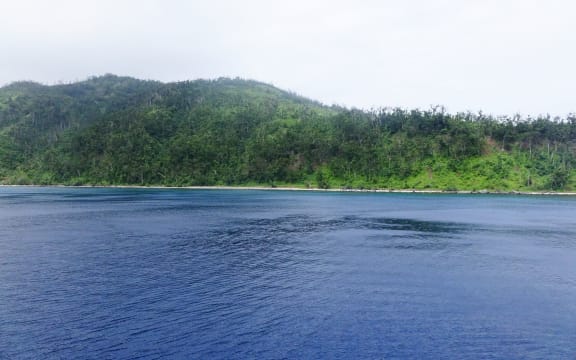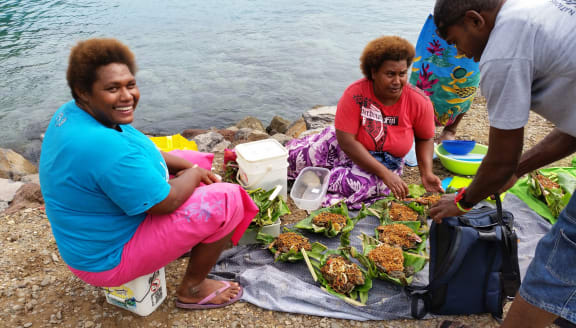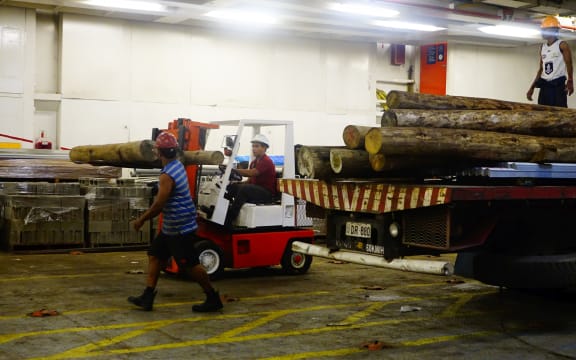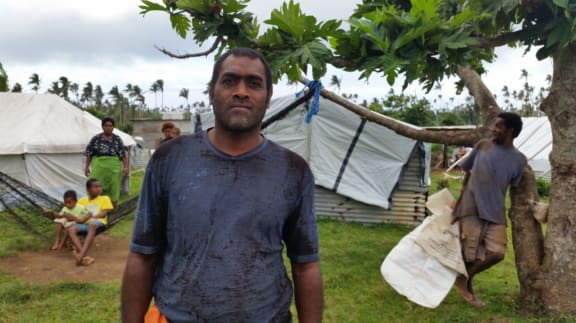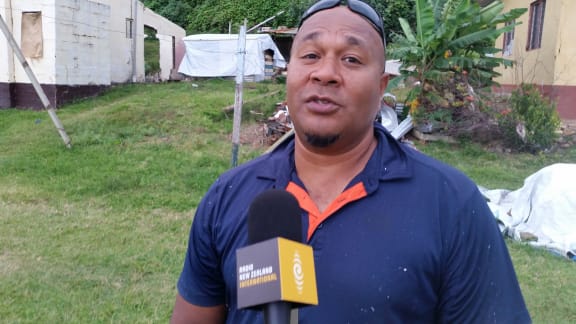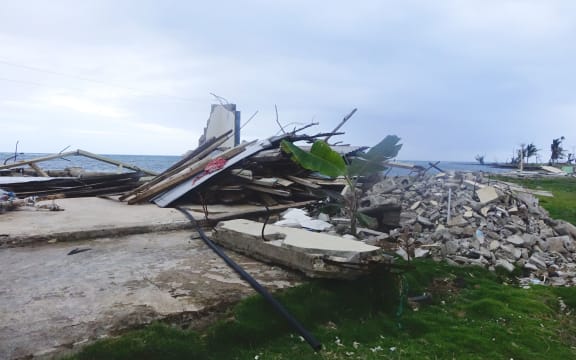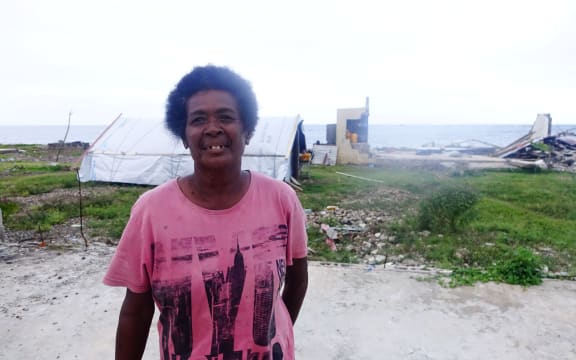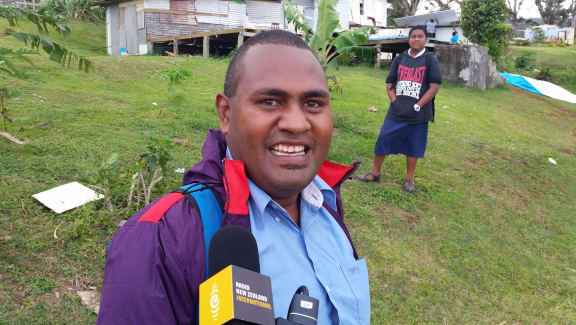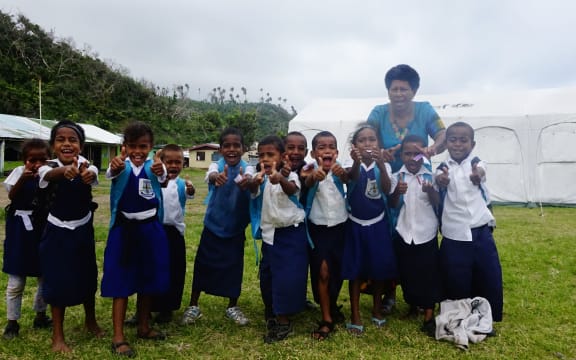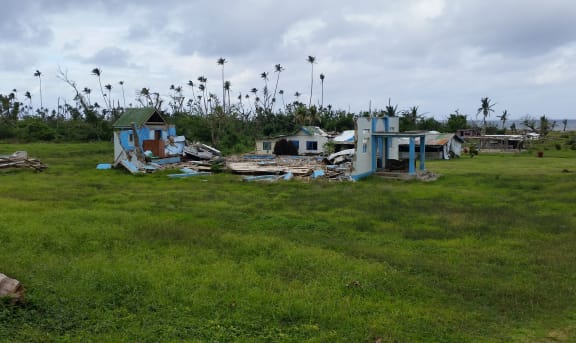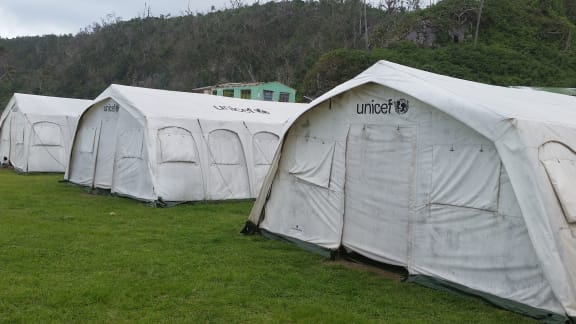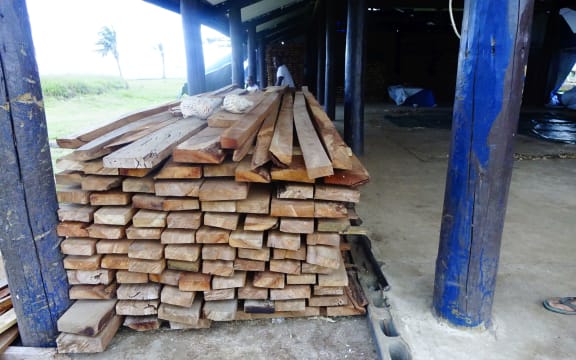Aid organisations in Fiji are aiming to build category four and five standard shelters in badly-hit locations as another cyclone season nears.
Koro Island was struck by Cyclone Winston in February, claiming eight lives on the island, and wiping out most of the houses.
It suffered winds of up to 325km per hour and its ferocity was captured on film by volunteers from Think Pacific.
Now, building supplies are arriving in proper quantities for the first time since the February cyclone, and they're being welcomed with open arms.
Families have been living in tents that are now leaky and covered in mildew.
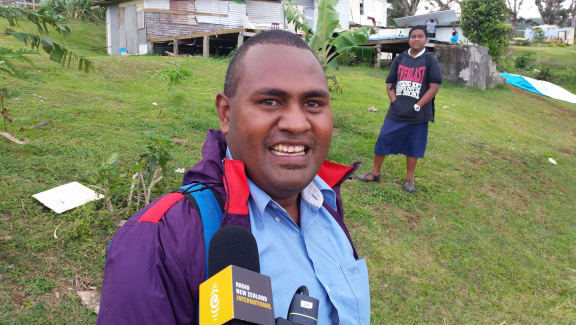
School teacher John Rounds on Koro Island Fiji Photo: RNZ / Alex Perrottet
A school teacher at Koro Island High School, John Rounds, said it had been a tough six months.
"It's very sad to see the students, without classrooms, learning in the tent, during the hot and sunny weather," he said.
"It's very hot inside the tent, we cannot teach properly. That's all that happened to the students. We're still waiting for what the government will do so mostly after this year or next year."
But schools will have to wait longer, because for now, homes are a priority.
See a full gallery of the Koro Island rebuild here
The chairman of Naqaidamu village, Niko Komainavoka, said they had received some materials, but were waiting until higher land was properly cleared for new homes, and that's going to take serious government intervention, and time.
The next cyclone season could start within weeks and he said Naqaidamu doesn't have any safe structure.
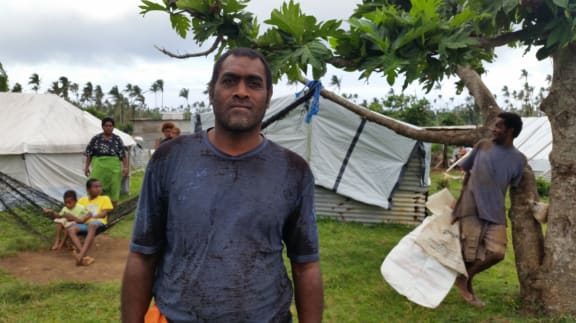
Niko Komainavoka the chairman of the Naqaidamu village council on Fiji's Koro Island. He says he is hoping to have a safe house for the upcoming cyclone season. Photo: RNZ / Alex Perrottet
"Safety plan is rebuilding what we've got right now, we have to have a safe house just in case the hurricane season comes," he said.
"At the moment there's no safe house, maybe there's a concrete house there, just fix it up and stay there."
Down the road at Nasau village, where five people died in the storm surge, ruins are still scattered everywhere.
But there's a shed with piles of wood, that has been cut from local forests.
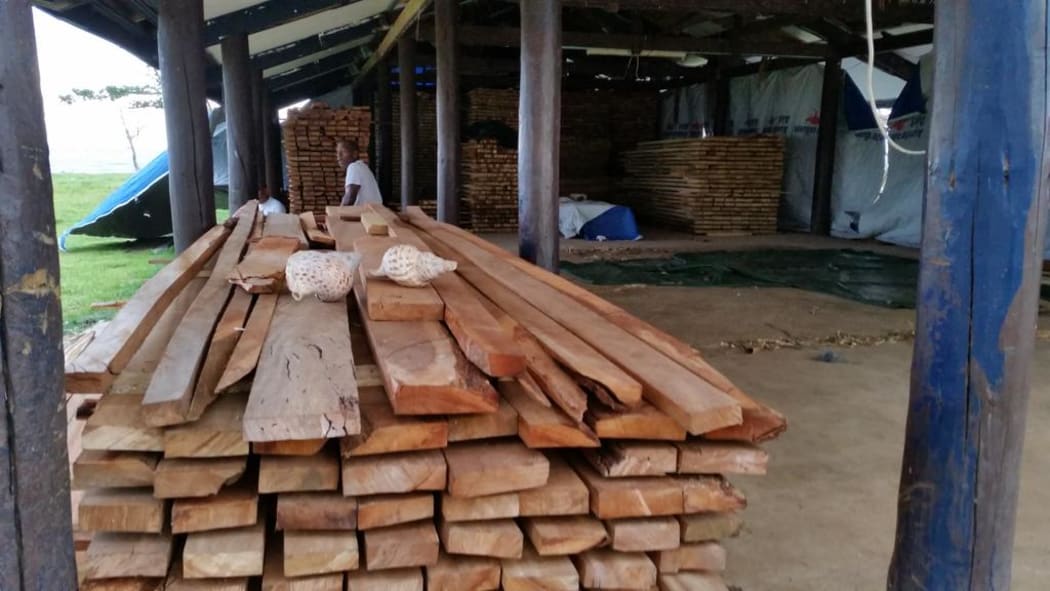
People on Koro Island are too desperate to wait for supplies and have cut wood from the forest themselves. There's enough here for 100 homes. Photo: RNZI/Alex Perrottet
Chief Kilione Tamani said he used primitive methods of rolling logs to collect a lot of the trees that Winston cut down, and a portable sawmill that he's now lending to other villages.
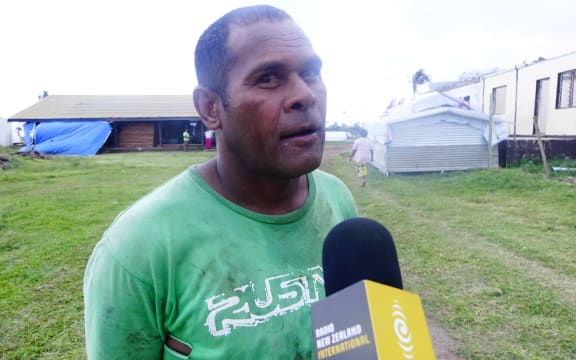
Kilioni Tamani Turaga ni Koro of Nasau village Koro Island Fiji Photo: RNZ / Alex Perrottet
"They have to pull, hundreds of metres, big logs, with ropes. They pull it towards the sawmill then they cut those timbers then lift it to the roadside and then the trucks pick it up and come and store it," he said.
He said his people wanted to help themselves and not be completely dependent on the government.
"This is their own initiative, they want to do this for themselves, to quicken the process."
But Rusila Delagi and her brother Turakai are living in a tiny corrugated iron hut next to where their house once stood. All that's left is the fireplace and chimney.
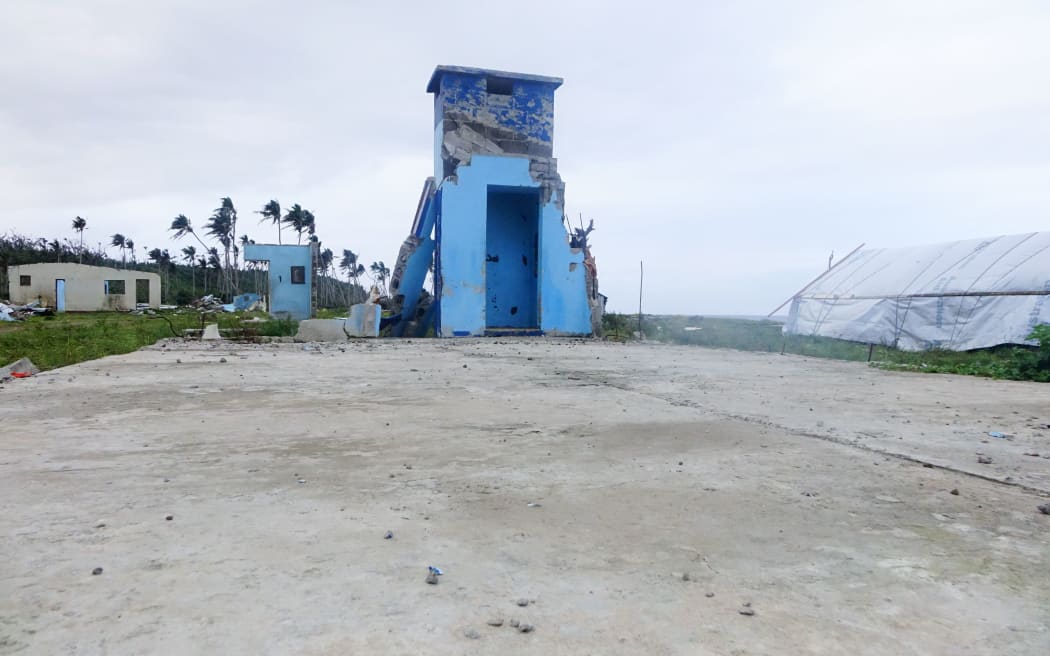
All that's left of Rusila and Turakai's home in Nasau Koro Island Fiji Photo: RNZ / Alex Perrottet
Rusila said she hadn't received her new materials for her new house, but she's happy to be alive after running away from the storm surge and seeking shelter up at the health centre on higher land.
Chief Kilione Tamani said he too is waiting for land to be cleared to build new homes, and families like Rusila's who live close to the shore will have to relocate.
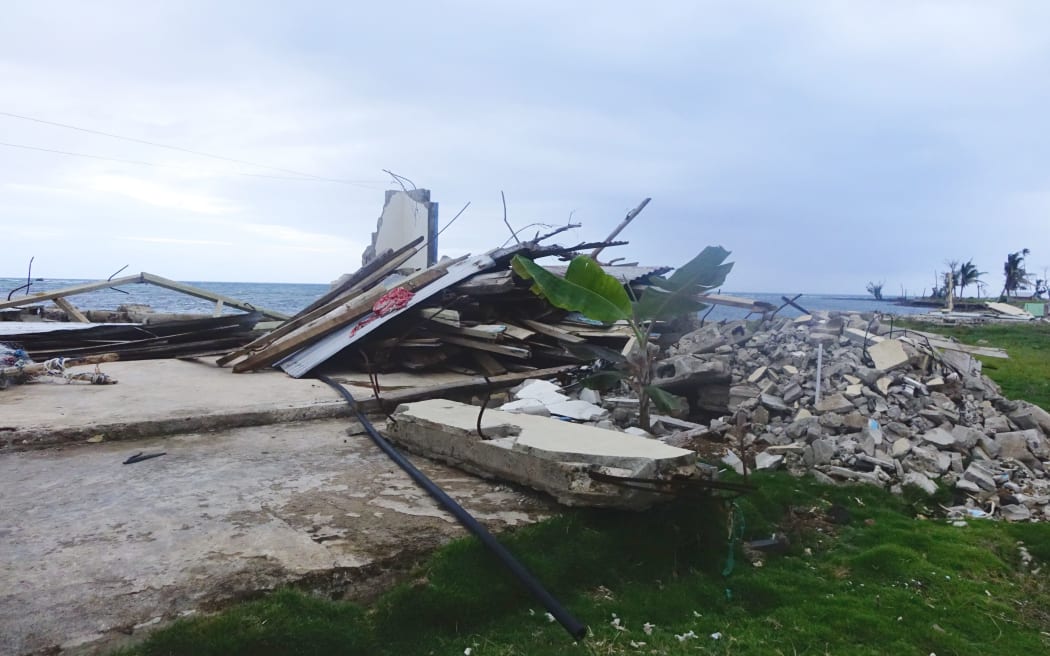
Ruins of the home of Rusila and Turakai in Nasau village Koro Island Fiji Photo: RNZ / Alex Perrottet
The Director General of the Red Cross, Filipe Nainoca, said he's coordinating with Habitat for Humanity to make sure each village has something to gather in should a cyclone hit in the coming months.
"We are working to ensure that at least in one community, one home is built that will be safe, that can take the cyclone and can be used as a shelter," he said.
"So that's the current strategy that we have at the moment."
He said they would build 50 shelters around the island, and train local carpenters, with detailed plans for small houses measuring four by six metres.
"What we are going to do actually with this project is to also train community carpenters how to build back better, how to use these building materials to build stronger, sturdier buildings that can withstand at least up to category four, five cyclones," he said.
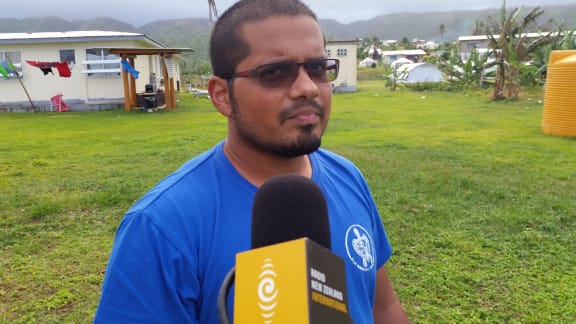
Dr Ravneil Singh, the only doctor on Koro Island in Fiji Photo: RNZ / Alex Perrottet
Dr Ravneil Singh was sent to Koro for his first placement three days before Cyclone Winston struck.
He said the Fiji Red Cross Society, Oxfam and All Hands Volunteers had successfully built temporary toilets.
He said he was amazed at the low level of infections, but he hoped the new homes had more permanent toilets.
"We are targeting water-sealed toilets, so there's multiple NGOs that's helping with the waste disposal so I suppose that's going well," he said.
"I think the main thing now is housing, houses. So that [lack of housing] leads to sanitation, infectious diseases, typhoid and things like that, vile hepatitis."
But while volunteers have been working hard for months to set high sanitation levels, many families are still struggling from a lack of food and basic items.
Groceries are arriving at the local store, but one family said they did not have the money to buy them.
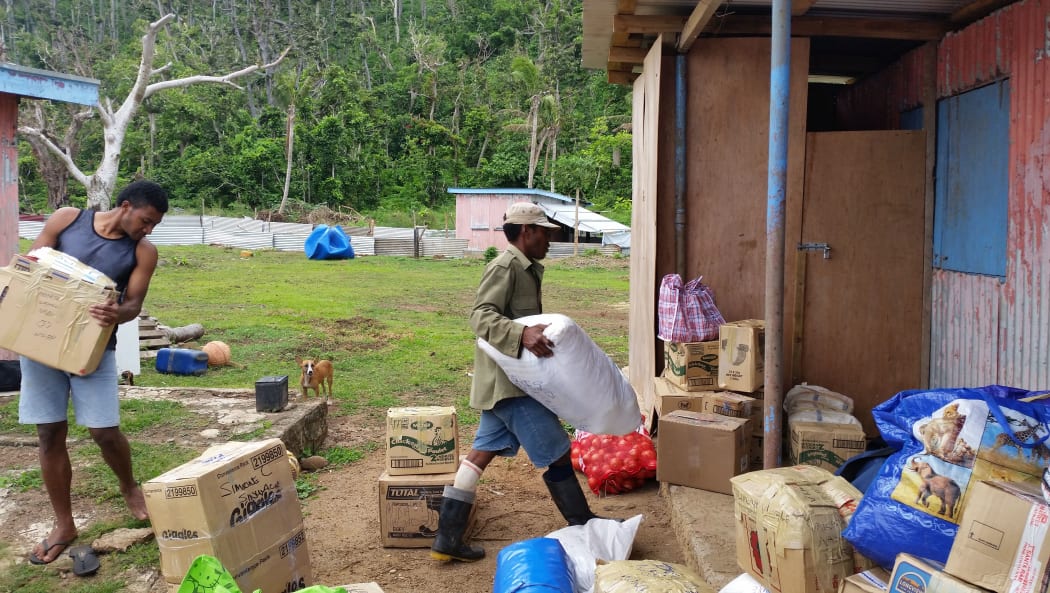
Groceries arrive at the general store at Koro Island in Fiji. But many people can't even afford them Photo: RNZ / Alex Perrottet
Kameli Karavaki, a farmer, said taro and cassava were vital for Fijians but they were yearly crops and many of them wouldn't be ready until halfway through next year.
"We need more planting and we need more food," he said.
"The food rations being distributed to all villages, in this village, plenty house don't have any food. October, November, December, only the leftover food from the farm, will take us. But next year will be a big problem."
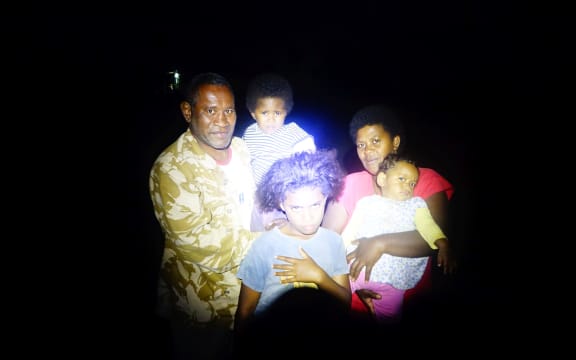
Kameli Karavaki and his family in Nacamaki village on Koro Island, Fiji Photo: RNZ / Alex Perrottet
His wife Kelera, who is a health worker, said they still needed basic items.
"Rice, flour, sugar, laundry soap, like that. There's a store here, the only problem is we don't have money to buy. It's very tough we don't have much money."
Volunteers have been on the island for months, living in tents.
Reuben Grandon directs the All Hands Volunteers and said it was a relief to see the materials coming in, as they were preparing to head out.
"The tarps and tents are kind of at their end, it's been about six months or so since they came in so it's good that Red Cross has more tarps to distribute and it's really good to see more permanent building structures coming in," he said.
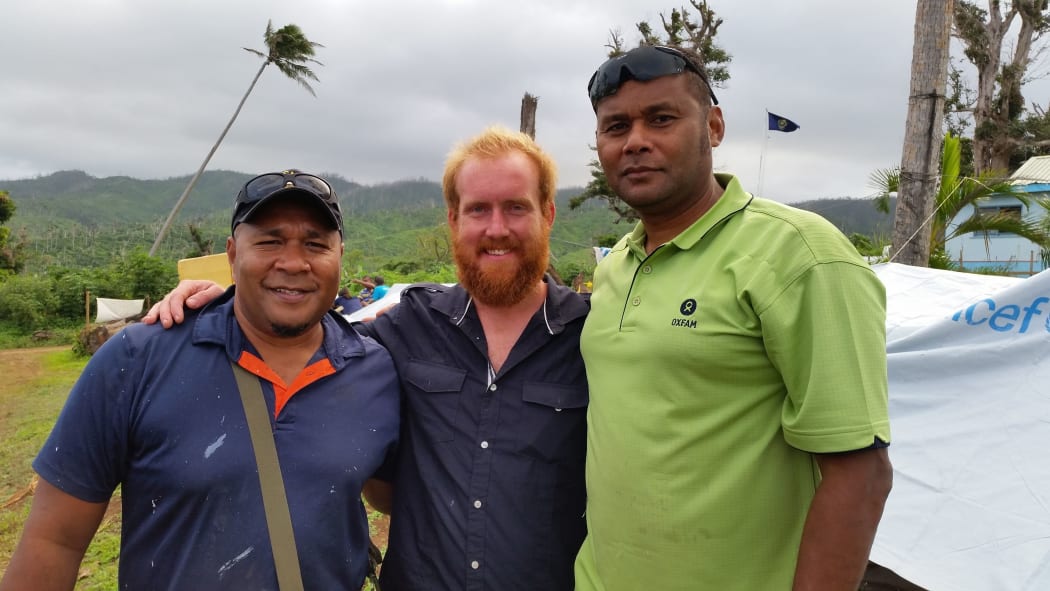
Aid workers Elazar Duiabe from Oxfam, Reuben Grandon from All Hands Volunteers and Taitusi Tubuitamana from Oxfam Photo: RNZ / Alex Perrottet
Filipe Nainoca from the Red Cross said they are sending emergency supplies in containers to islands like Koro and badly-hit Vanua Balavu, so they would be ready for the next big storm.
But Koro is still in emergency mode, and will be for a long time.
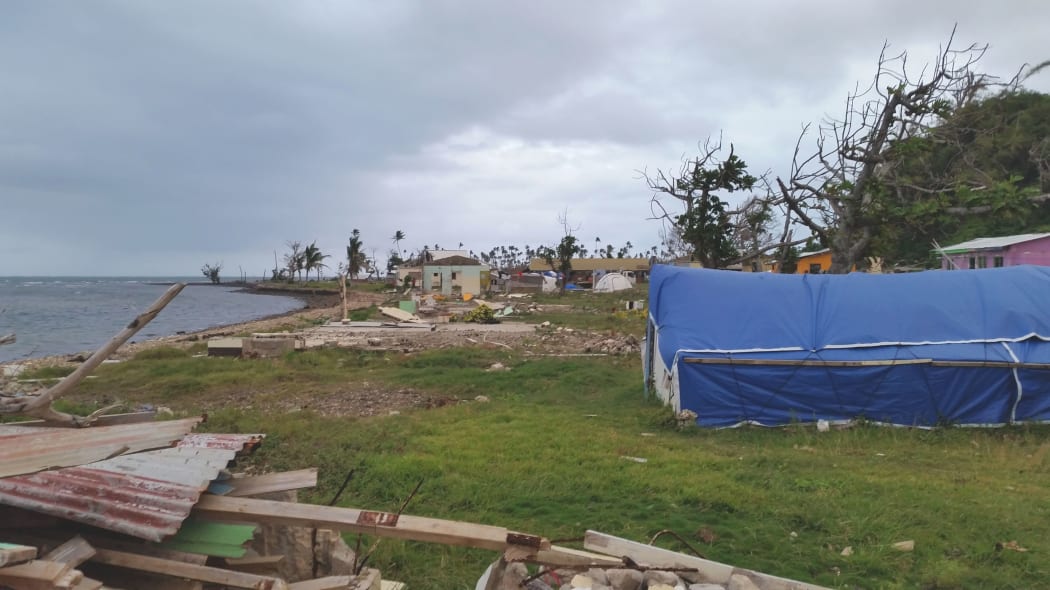
Homes that were on the shoreline on Koro Island in Fiji will have to be relocated inland Photo: RNZ / Alex Perrottet
